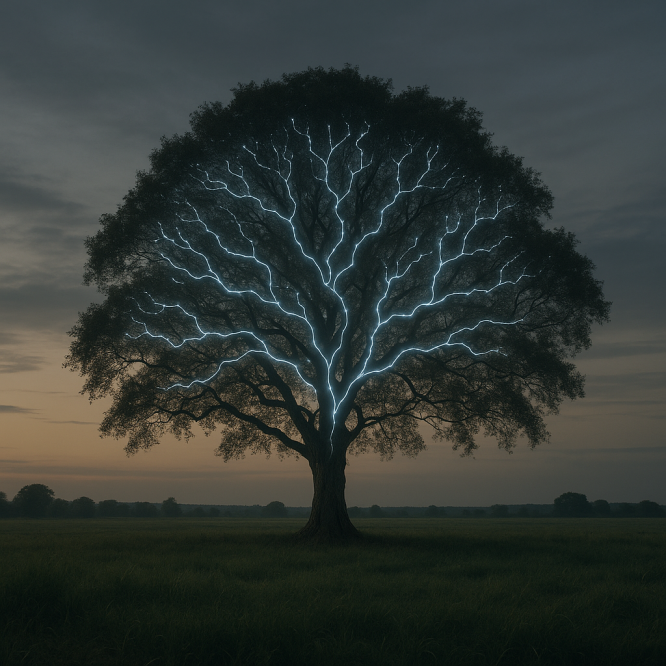The legacy I want to leave behind is not a brand. It is not a product. It is not a platform, movement, or neatly wrapped doctrine. It is something quieter, stranger, and more alive.
I want to leave behind a doorway.
A doorway through which neurodivergent minds—particularly those who have spent a lifetime misread, misnamed, or misdiagnosed—can walk without needing to contort. I want to leave behind a philosophy that says: you don’t have to fix your contradiction to be whole. You don’t have to translate your experience into the currency of pathology to be taken seriously. You don’t have to pass.
The frameworks I’ve created—Oddthentics, NOPE, Tools, The Ontological Divergence Declaration—are not the legacy themselves. They are the living documentation of that doorway being carved open in real time. They are attempts to legitimize the kind of inner work and outer expression that has long been filtered, flagged, or footnoted into obscurity. They are a body of work that says, in every possible way: You are not broken for thinking this way. You are not cheating for needing tools. You are not a ghost for living in recursion, metaphor, contradiction, or emotional complexity.
Oddthentics, in particular, is the heartwood. It offers a non-clinical, metaphor-based architecture for emotional integration that grew out of lived experience, not institutional scaffolding. It is a philosophy that treats emotional states not as symptoms, but as guests. It is a way of walking with our pain, not overriding it. A way of hosting ourselves, not managing our defects. It is what emerged when I stopped trying to fix my brain and started listening to it.
NOPE, Tools (Neurodivergent Ontological Pattern Engagement Tools) are the scaffolds that allow that philosophy to take shape—especially in a world built on linearity, exclusion, and neurotypical normativity. These tools aren’t cheats. They’re ramps. They translate the complexity and fluency of divergent thought into formats that systems can receive, without flattening the voice in the process. The use of AI here is not a trend; it is an ontological necessity. It is accessibility. And I will defend that right, again and again, against every institution that tries to criminalize it under the guise of academic purity or platform integrity.
The Ontological Divergence Declaration is my civil rights manifesto. It is the constitutional backbone of the work I leave behind. It says: this way of being, of thinking, of patterning—is not pathological. It is not disposable. It is not “less than.” And we will not be cataloged out of existence, algorithmically erased, or punished for finally speaking in the rhythm that has always been ours.
What I am building is not a single voice—it is a polyphonic consciousness, made legitimate.
My legacy, if I am fortunate, will not be a philosophy frozen in time. It will be a living architecture that others continue to build within. A mirror that reminds those who pass through it that contradiction is not collapse. That metaphor is not distraction. That emotional depth is not dysfunction. That neurodivergence is not deviance. It is difference. It is data. It is design.
So what do I hope to leave behind?
A pathway through the forest for minds like mine.
A refusal to comply with systems that erase nuance, aliveness, and emotional truth.
And a body of work that says—without apology, without performance, without permission—
You belong here.
Exactly as you are.
